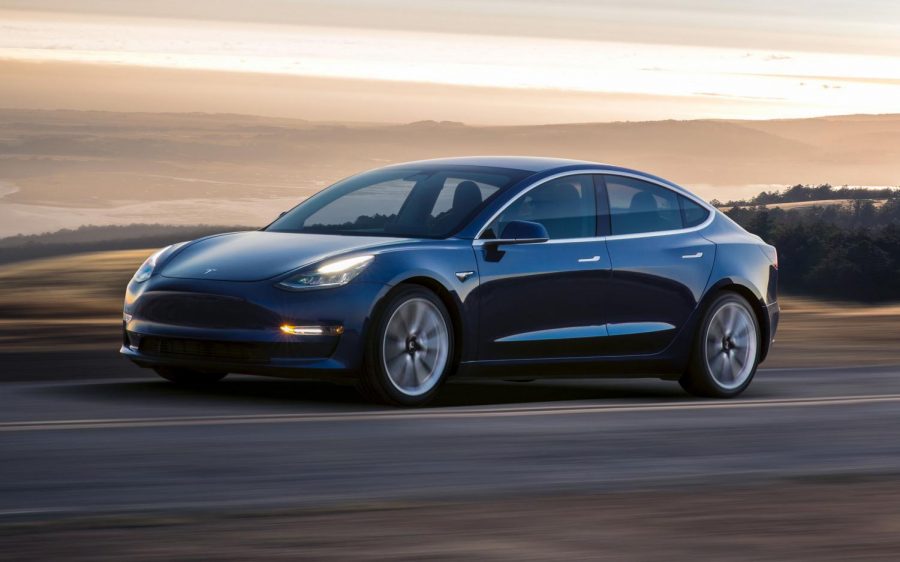Why Electric Cars are Making a comeback
February 3, 2020
For as long as we could remember, cars ran on gasoline only. Cars have evolved as time went on. They went from being a luxurious status symbol to a sport to a consumer product. They continue to evolve to this day, but no one expected the electric car to be the next step towards the automobile’s history.
When people first started imagining a future of electric cars, they imagined slow, boring, ugly-looking, and low-range vehicles trotting along our highways. At the time, electric cars were nothing more than golf-carts.
The first mainstream company to challenge this ideal was, of course, Tesla. With the release of the original Roadster in 2009, Tesla borrowed parts from other luxury brands like Mercedes and Lexus to build up its first car.
After that, Tesla built their first sports sedan in 2012 — the Model S. This sedan was made famous for its sleek design, quick acceleration, and long-range. This went against everything that critics expected the electric car to be.
Following the Model S was the Model X and soon after, the Model 3. These are all sleek looking cars with quick accelerations and long ranges.
Although Tesla led the mainstream evolution of the luxury and mid-luxury electric car, other companies are following suit. Luxury German brands like Mercedes, Audi, and BMW recently introduced electric plug-ins within their lineup. These range from the BMW i8 supercar to the Mercedes EQC SUV.
There are even electric cars from automakers that seem to directly challenge Tesla. Porsche’s Taycan Turbo S seems to directly compete with Tesla’s Model S. They both have similar speeds, looks, and ranges. Mustang’s Mach E also competes with Tesla’s Model Y.
With new electric vehicles (EVs) popping up from various brands, competition stirs up. Competition from brands is always good because it allows the customer to have more choices.
Why is the sudden uproar of the electric vehicle so sudden and so significant?
Well, more and more people are starting to go “green”. Going “green” is a vague term for taking the environment into consideration. This can range in anything from ordering a vegan patty in your burger instead of a regular one or starting an infamous multi-million-dollar electricity and electric car company.
There are of course many other reasons why someone would want to buy an electric car.
Not only are they “greener” than their traditional counterparts, but they’re also cheaper to run. Gas constantly fluctuates in price and is constantly rising. I can’t tell you how many times my uncle starts an argument about gas with “Back in my day, we only had to pay a few cents for gas.” Will we be doing the same thing in the future? If so, then an EV could be the move to make.
“Well what about charging?”, you might be asking. “Doesn’t it take a long time to charge and isn’t it inconvenient?”
“Well”, Mario, a PHS sophomore, adds, “if you plug in before you go to bed, you could start off each day to the equivalent to a full tank of gas. And you’ll only ever have to charge outside of your home if you’re on a road trip.”
Electric cars have come a long way from the slow golf carts they were once thought to be. With new and exciting options from mainstream companies, will you buy an electric car in the future?
